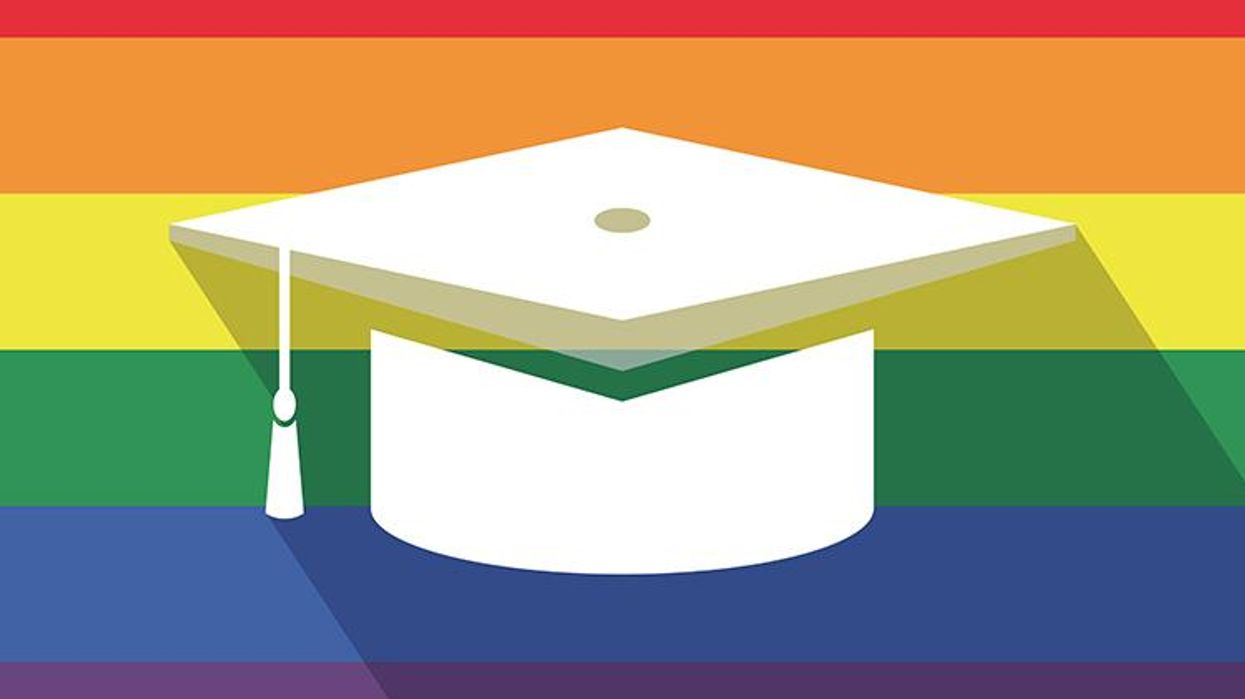LGBTQ youth are not safe in school -- and attempts at protecting them continue to be hotly contested. In March, the U.S. Supreme Court decided not to hear the appeal of a lower court's ruling in favor of Gavin Grimm, a transgender boy who petitioned for access to the boys' bathroom at his high school, and sent it back to the lower court for further consideration. In April, the Virginia Supreme Court upheld the inclusion of sexual orientation and gender identity in Fairfax County Public Schools' nondiscrimination policy. In 2016 alone, there were more than 200 pieces of legislation challenging the rights and privileges of LGBTQ individuals, many of which involved schools. Our nation's education secretary, Betsy DeVos, refused to say on Wednesday whether she would stand up for LGBT students (see below).
A recently released RTI International study sheds new light on the school safety issues facing LGBTQ youth. The study, which examined two decades of research on victimization among LGBTQ youth, uncovered a troubling picture of the environments LGBTQ students face in schools.
Physical and verbal bullying of LGBTQ students is commonplace. In a representative sample of eighth-graders in Washington State, 14 percent of boys and 11 percent of girls reported being bullied because of their perceived sexual orientation in the past 30 days alone. LGBTQ students are two to three times more likely than their peers to be physically assaulted or threatened at school. The threat of hate-related victimization during school-age years was described in potent detail by LGBTQ adults who participated in focus groups with the Henne Group and RTI in four cities across the U.S.:
"In high school, they will throw you around a bit, push you. Then throw you in the car and take you five miles out of town and strip you to your underwear and let you walk up to town." --Gay male focus group participant in Wyoming (September 2016)
Such experiences have very serious consequences for students who are victimized, according to research in a wide variety of settings and with many school populations. Students who experience anti-LGBTQ bullying are significantly more likely to report depression and suicide attempts, skipping school, poorer school performance, and dropping out of school. Victims of anti-LGBTQ bullying tend to fare worse than students bullied for other reasons, perhaps due to the ways that hate-related victimization reinforces existing perceptions of hostility (e.g., hearing homophobic comments at school).
Even within this scenario, Orwellian equality rears its head. While research shows many LGBTQ students are victimized, some are more likely to be than others. Transgender youth and youth with unique gender expressions are at a higher risk for bullying, as are those in rural or impoverished communities and those who attend schools without gay-straight alliances. Such events may create a threatening environment that isn't conducive to school engagement among LGBTQ youth. Regardless of personal victimization status, LGBTQ students are one and a half to three times more likely to skip school because they feel unsafe than are their heterosexual peers.
In a society in which the opportunities of those who do not finish high school often steeply diverge from those who do, the responses to this issue will shape the opportunities of a generation. As LGBTQ individuals come out earlier than before, it's becoming even more pressing for schools to create a safe environment for their students.
Action is urgently needed to address the hostile environment that LGBTQ youth face at school and its effects on school engagement, mental health, and long-term opportunities. Our study points to three potential strategies that could help to address these issues:
* Competency and advocacy training for school psychologists and teachers -- who generally report supportive attitudes toward LGBTQ students but lack the knowledge and skills to advocate for them -- could help create more supportive, less hostile climates in schools.
* Fostering the development of gay-straight alliances in schools, which seem to offer some protection against school-based victimization risk, is another promising approach. Although secondary schools are not permitted to ban gay-straight alliances if they allow other extracurricular groups (per the Federal Equal Access Act of 1984), school principals still commonly take measures to exclude them (American Civil Liberties Union, 2015). Such discriminatory practices must be addressed and replaced with active support for groups and services that make schools safer.
* Increasing resources to respond to victims of anti-LGBTQ bullying, particularly to prevent suicide and school dropout. Affirming and culturally responsive services for LGBTQ bullying victims are critical, particularly given the fact that help-seeking often requires LGBTQ students to disclose not only the stigmatized experience of bullying and victimization, but also a stigmatized gender or sexual identity to school counselors or other professionals.
Public schools entrusted by the federal government and taxpayers with ensuring equal access to educational resources must work to create environments where LGBTQ children do not have to choose between getting an education and keeping themselves safe.
TASSELI MCKAY, MPH, is a social science researcher at the Center for Justice, Safety, and Resilience at RTI International. She has more than a decade of experience conducting fear and victimization research among marginalized communities.















Charlie Kirk DID say stoning gay people was the 'perfect law' — and these other heinous quotes
These are some of his worst comments about LGBTQ+ people made by Charlie Kirk.